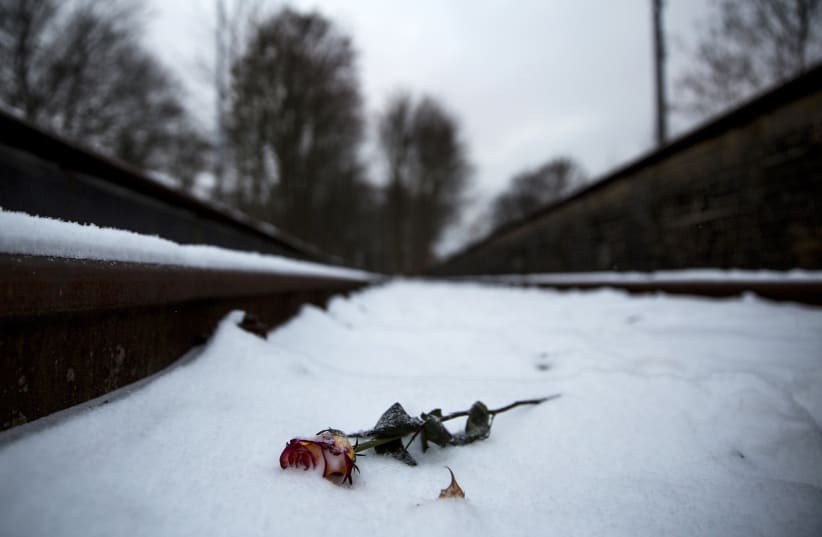Amidst the chaos, everyone is pointing fingers. Jews on the Left are calling out US President Donald Trump and the elevated platform given to white supremacists, while Jews on the Right are targeting Democrats who support US. Rep. Ilhan Omar, other political officials who seek to delegitimize the State of Israel and the vigilante BDS activists infecting college campuses. Antisemitism has again found a comfortable home in the United States, and everyone wonders who or what to blame for the surge in prejudice against American Jews.
I believe Holocaust education is partly to blame. Or rather, the lack thereof.
In the United States, Holocaust education has been appropriated and hijacked, used mainly as a vehicle to teach about human rights, racism, prejudice and bullying. It is rarely employed as a means of teaching the main lesson of the Holocaust, which is that antisemitism is so incredibly dangerous, it can lead to the mass murder of Jewish people.
When done appropriately, Holocaust education inherently transmits messages about the hazards of all forms of racism and prejudice. When taught correctly, antisemitism must be the central theme and students, after having completed classes on the subject, should walk away with at least a handful of historical facts about the events that took the lives of six million Jews. Six million Jews who were murdered solely because of antisemitism.
“Never Forget” is not a reminder to remember those who perished in the Holocaust; it is a reminder not to forget why they perished.
Over the last few decades, in an attempt to encourage continued interest in Holocaust history, American educators and education initiatives such as Echoes and Reflections and Facing History and Ourselves – which are programs meant to assist teachers in addressing the difficult topic inside the classroom – have whitewashed the particularity of the Holocaust. Instead, they posited a position of universalism, i.e., that the Holocaust was not a unique event and that Jews are not unique in their victimhood. Holocaust universalism attempts to de-Judaize the Holocaust by dismissing the Jews as the main actors in the Holocaust narrative and removing antisemitism as the leading cause of their destruction. It has become the norm, not only in classrooms but also at Holocaust museums and memorial sites.
We see the results of this universalism every time someone uses a Holocaust analogy to describe a contemporary world event, evokes the image of the Holocaust to elicit political outrage, or makes comparisons between current leaders and Nazi officials. American Jewry has been active participants in this universalism. Since the 1960s, American Jews have felt a need to find commonality with other minority groups in an attempt to gain inclusion and legitimacy but, in so doing, have allowed ourselves to forget the primary lesson of the Holocaust. We have instead taught three generations of Americans, and ourselves, misconceived notions of what antisemitism looks like, sounds like and what it can lead to.
Holocaust education in its present form has failed us and desperately needs rehabilitation. It has watered down the messages of the survivors and it glosses over the primary lesson we were charged with remembering – that antisemitism inherently leads to violence.
The writer is the Social Media Editor of The Journal of Holocaust Research and the Social Media, Marketing and Outreach Coordinator for the Weiss-Livnat International MA Program in Holocaust Studies at the University of Haifa, of which she is also a graduate. She is originally from San Francisco and has been living in Haifa for two and a half years.
